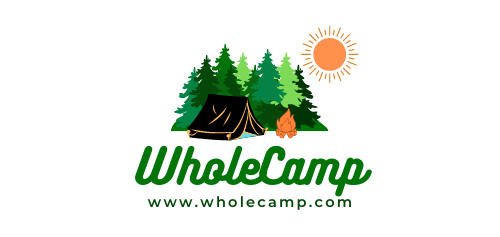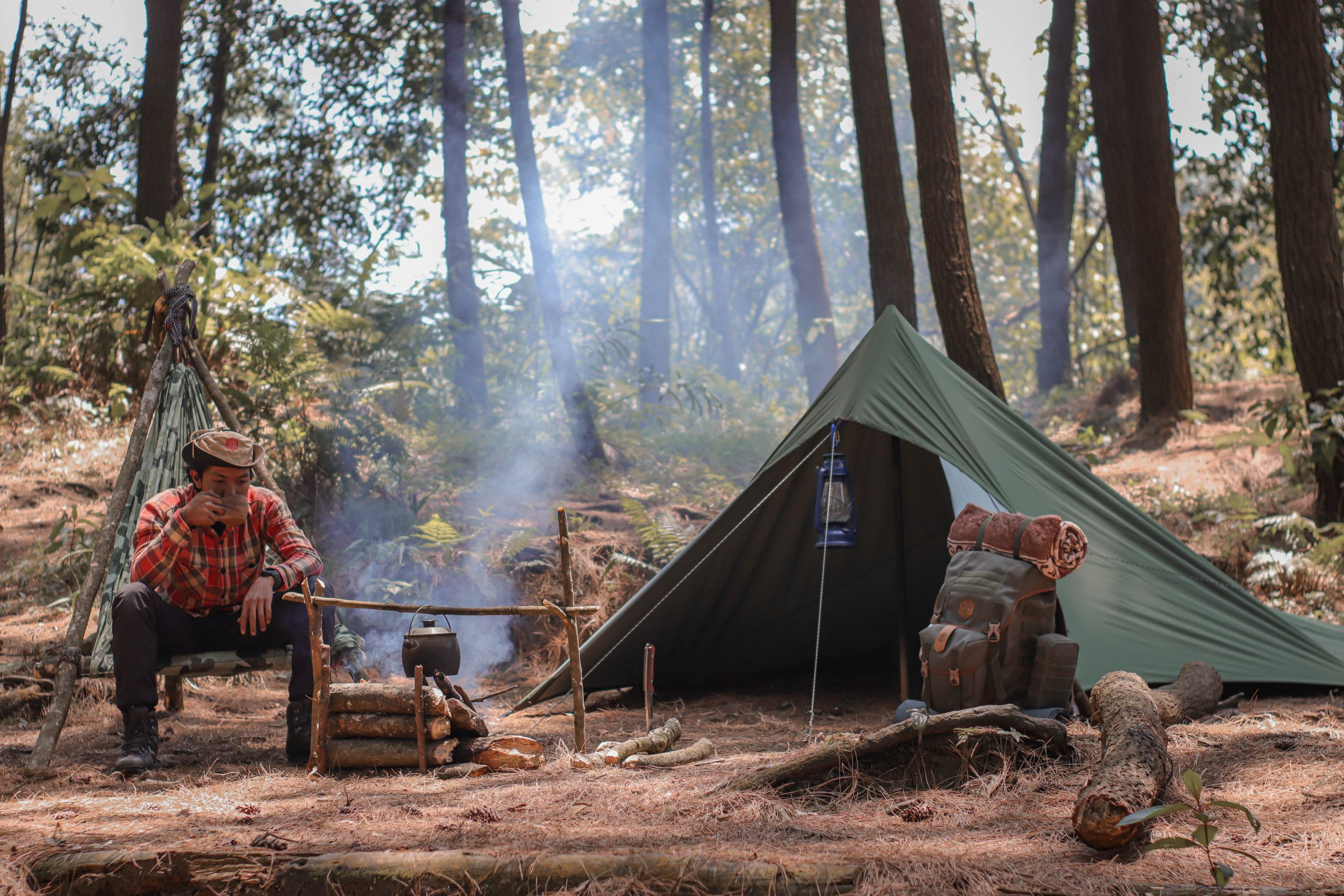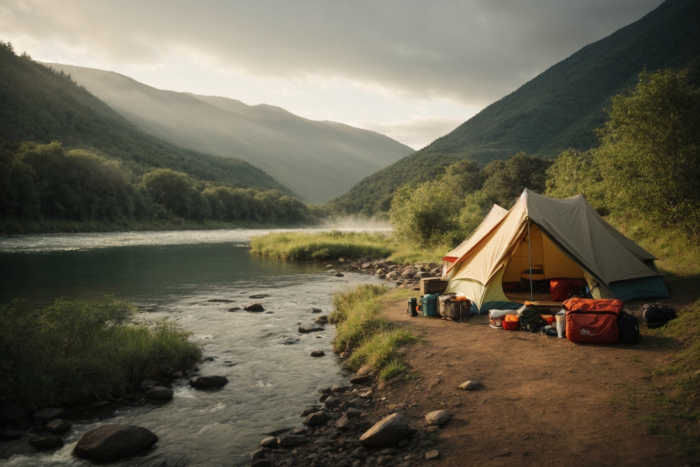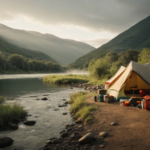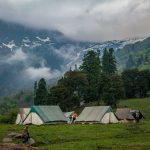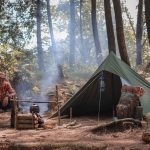Camping Plan for Beginners
Do you have a plan to spend your whole vacation in a luxurious hotel? Of course, but, on the other hand, you can live in a tent beside the natural ground for some days with real adventure and fun. If you plan to spend some days with nature, read this “Camping plan for Beginners” article.
What is camping? Beginners need an excellent camping plan.
Camping is how to be out in nature and enjoy the great outdoors. It can be a fun and relaxing experience or provide some exciting challenges. There are wide varieties in the types of camping, from backpacking to car camping, and each has its benefits. Some benefits of camping include getting outside and enjoying the fresh air, spending time with friends or family, learning new skills, and gaining a greater understanding of nature.
Camping can be a fun and affordable way to get out in nature, but it can also be challenging for beginners without a proper camping plan. This camping plan is explicitly designed for beginners and will provide tips on choosing the right camping gear, setting up your tent, and making the most of your camping experience.
What are the benefits of camping?
Camping always is a way of experiencing nature and relaxing. Some of the benefits of camping include
- Spending time outdoors in a peaceful environment, getting exercise by walking or hiking
- Learning about different plants and animals
- Making new friends
- Gaining knowledge about survival tactics and having a memorable experience.
Many different types of camping are perfect for different people. You can camp under a tent, RV, or cabin. The options for camping are endless, and all of them have advantages and disadvantages. A common form of camping is to camp in the wilderness or on a campsite.
The best experience in camping starts with a great camping plan, especially for Beginners. The best preparation ensures you get the most out of your adventures regarding a camping trip. But, Planning the perfect camping trip can get frustrating. The good news is that you are not alone in this situation. Just like you, many of your friends or family want to know how to plan for a successful camp outing.
The main obstacle to planning a camp trip is the lack of information on the internet. I was very frustrated, and it was so hard to research campgrounds online. But the hope is here; we can plan for places by considering some parameters. We can start with these questions to pick the right place.
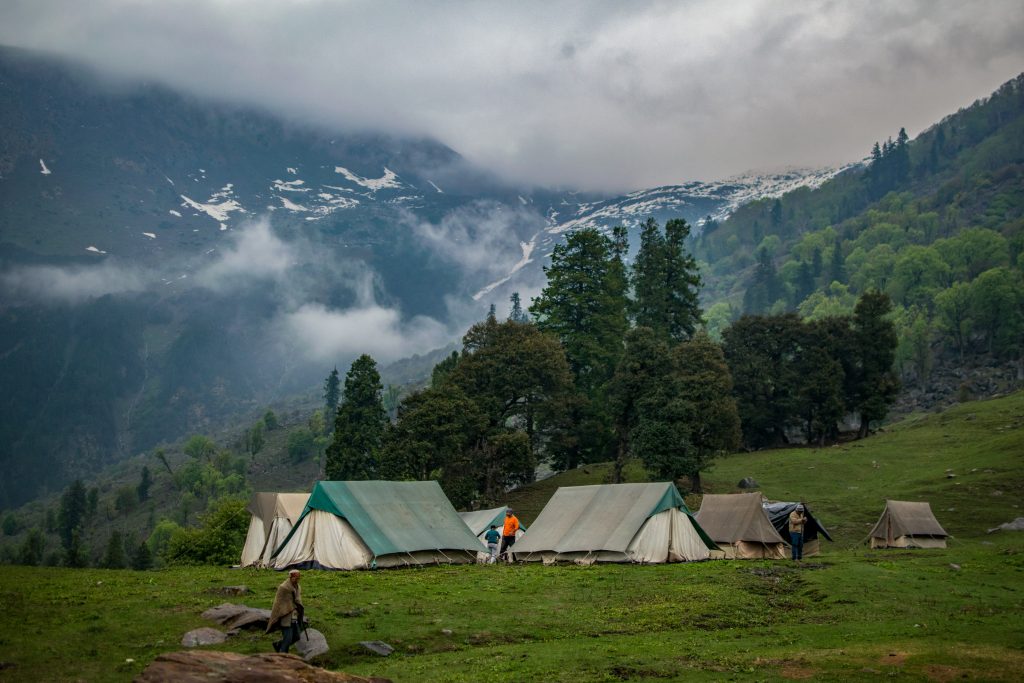
How much is your budget for Camping as a Beginner?
Budget is one of the viable factors for camping. If you are a starter and have a low budget, you will have to plan for a short-distance campsite. The distance should not be more than three kilometers from your living place.
Always try to make a team of five to six people. The more you will add, the less the expense will be. But, keep in mind that all group members have the same mentality. It will be better if you have two or three experienced campers. Therefore, they will guide you for the whole camp.
Though you have less budget, you may have to buy some essential products. You can borrow expensive gadgets like a tent, stove, sleeping bag, or mobile toilet from your friend, or you can share if your group members have these.
If you have no tension for expenses and are willing to go for a long-distance, you can pick some wild and riverside grounds. At this time, you are free to choose any place that suits your mind. But here, you must remember that if the site needs extra precaution, add the necessary tools with you as a camping plan. Furthermore, a reservation for the campsite is a must if you go to the camping sites.
As a Beginner, try to plan for the best season for camping.
Different campers have different seasons’ priorities. So, it varies depending on the camper’s choice—some like the winter season for winter camping; some others like summer camp. The rainy season is difficult for beginners as the ground is always wet and wild insects and snakes are the main threat to the base. Always pick a slightly higher and drier place from the water source as it will be your first Camping plan. As you know, wild animals depend on that source and will come there for water. If it is a bear? Or another fierce animal?
Camping Locations: Where should you plan to camp?
Camping is an aristocratic way to get away from home and enjoy nature. But where should you go camping?
A long trip is always full of adventure and joy. But the short trip also has the same impact on camping. The difference between the two is time duration and location distance from the living site. I will suggest that the beginners pick some short trips for the early camping experience. It will end soon, and since you are not very far away from your home, you can return home if you have any problem being in the camp.
Types of Camping: What kind of camping is best for you?
Camping can be an adventurous experience and fun, depending on the type of camping you choose. Here are six types of camping and what they offer: backcountry camping, car camping, caravan camping, park campground camping, primitive camping, and urban camping.
Backcountry camping is the most adventurous and challenging type of camping. You must be prepared for harsh conditions, including high altitudes and rough terrain. Car Camping offers convenience but may not be as stimulating as backcountry camping. Caravan Camping is a middle ground between backcountry and car camping, where you have more control over your surroundings but still have access to conveniences like toilets and showers. Park Campground Camping is the most popular type of camping because it offers all the benefits of other types with easy access to facilities like restaurants and shopping.
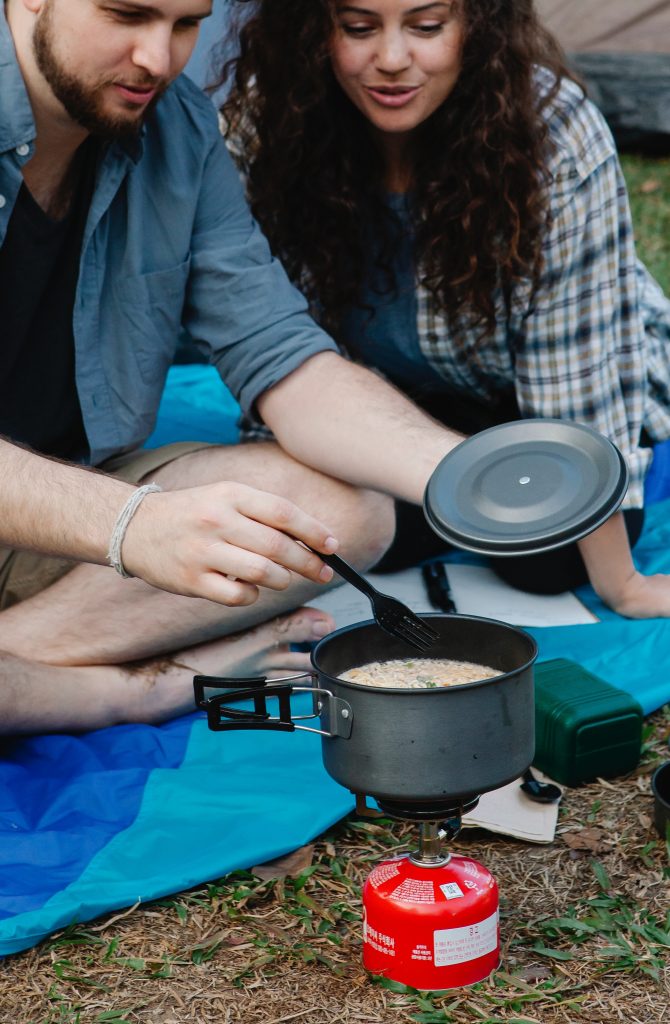
Do you love a short trip plan for Camping?
A long trip is always full of adventure and joy. But the short trip also has the same impact on camping. The difference between the two is time duration and location distance from the living site. I will suggest that those beginners pick some short trips for the early camping experience. It will end soon, and since you are not very far away from your home, you can return home if you have any problem being in the camp.
Do you need a heavy meal for lunch and dinner?
Food habit is the most significant part of a camping plan. You must take that with you if you want deliciously cooked food at the campsite. You will have to take stoves and other cooking tools with you. Generally, the camp has some arrangements for food supply. As you are a beginner, you can contact the organization for that. If your campground is beside a river, you may start fishing for some fish. You can collect fresh fruits, mushrooms, or other eatable plants in a jungle or other wild ground. But remember that never entirely depend on the campsite food and take your necessary ready-to-cook and dry food with you.
Do you need a toilet on the campsite?
A camping organization may give you some facility in the water closet. Be sure about that facility before picking up if you are not used to leaving excrement in the forest. Be gentle at using the shared spaces, and don’t rush. If you don’t have the facility of closets, then you may have to manage it yourselves. You will get different types of mobile toilets.
I hope you have summed up the location of your campsite. Now, let’s start our central planning for the camp.
You have a budget in your hand. You have group members. Now we will find what we will need to buy. Before buying, you will have to know the essential camping gadgets.
Equipment You’ll Need: What do you need to go camping?
Camping can be an exciting experience, but it can also be very challenging if you don’t have the right gear. Here are the supplies you’ll need to make your camping trip a success:
1. Tent
2. Sleeping bag or sleeping mat
3. Camp stove
4. Fuel (gasoline, propane, charcoal)
5. Food storage containers
6. Pot, pan, and utensils
7. Flashlight and/or lantern
8. Cooking utensils
9. Cooler
10. Camp chairs
11. Cooler for food storage
12. Tarp or tarps
13. Canoe/kayak, fishing gear, and/or fishing supplies
14. Water purification device
15. Hand sanitizer or soap 16. First aid kit
17. Sturdy backpacks
Choose the best Tent for you.
A tent is an essential gadget for camping. There is a lot of variety of tents available in the market. You will have to pick the right one for your group and must according to your budget. You will get tents for two persons, six persons, six persons and more. Depending on the design, the tents come in different shapes.

A-Frame/ridge tent: camping plan
This tent comes in the shape of an “A” letter in the English alphabet. Wood and Metal frames are the primary building material of this tent. But moderns are coming with lighter materials. This tent is easy to set and surprisingly stable, but it is heavy, bulky when packed, and lacks headroom.
Pop up tent: camping plan
The pop-up tent will suit you best if you need an instant tenting system. This tent is relatively new and loaded with springs. You can pop into shape this tent within a few seconds. But, these types of tents will not be suitable for extreme weather. Ease of use is the main key perk of this tent.
You will get more about the tents in brief in this post. If you need then click on the link.
You will get more about the tents in brief in this post. If you need then click on the link.
Dome tent: camping plan
The dome tent is the most common design of recent tents. The tent has two flexible poles crossing in the center and anchored to the corners. This tent is easily detachable from other types. Dome tents come in a different range of sizes. The tent’s capacity ranges from one person to eight people. There are two types of dome tents available by considering wall, single-wall, and double-wall tents. A breathable inner tent in double-wall designs is mainly made of mesh with a waterproof floor. The secondary wall is the rainfly resting on top of the poles. Single wall tents have an interior that is waterproof throughout, but it comes with an issue of breathability.
You can simply read our camping tent buying guide to understand the facts you have to know before buying a tent
The Sleeping bag

You already have a tent, and you can sleep there anytime. But, in case of an emergency or a rainy season, you may need a sleeping bag. This bag is specially designed to sleep by covering the whole body in the bag. It is safe where you have a chance of getting bites from wild insects.
The sleeping bag is essential for anyone who plans to spend time outdoors in cold or cold weather conditions. Sleeping bags come in various shapes, sizes, and weights, allowing you to find the right one for your needs. To ensure a good night’s sleep, various features can also be included on sleeping bags, such as hoods and drawstrings.
Tips for First-Time Campers: Camping Plan for Beginners
Camping can be a great way to enjoy the outdoors and connect with other people. But it can also be a daunting task for first-timers. Here are some tips to help make your camping experience easier: Camping is an activity anyone can enjoy, regardless of location or experience. There are many things to consider when planning a camping trip, such as the weather and terrain. Proper planning of your trip will ensure a comfortable and fun outing.
- Make a plan. Planning is vital when camping, so create an outline of what you want to do and when. This will help you stay organized and ensure you don’t miss any important events or opportunities.
- Take plenty of supplies. Just like at home, take enough food and water for the length of your trip, as well as necessary tools like a First Aid kit and tent stakes. Make sure you have everything you need before setting out in case something goes wrong along the way.
- Be prepared for weather conditions. A few days before your camping trip, check the weather forecast and be prepared for rain, storms, or even snow. 4. Be safe. Remember always to keep the campsite clean and try not to leave trash behind.
What items do you need to pack? When should you go camping?
Camping is an activity that anyone can enjoy, no matter their location or experience. There are many things you have to consider when planning a camping trip, such as the weather and terrain. Properly plan your trip to ensure a comfortable and fun outing. Here are some tips for planning your camping trip.
- Know your limitations. If you’re unfamiliar with the area you’re camping in, check the weather forecast and map beforehand to ensure there’s no risk of dangerous conditions.
- Consider your equipment. Ensure you have the necessary supplies for cooking, shelter, and navigation. Be prepared for changes in weather or terrain.
- Choose a destination wisely. If planning a multi-day trip, research each campground in advance to choose one that best meets your needs and interests.
Lighting for Camp
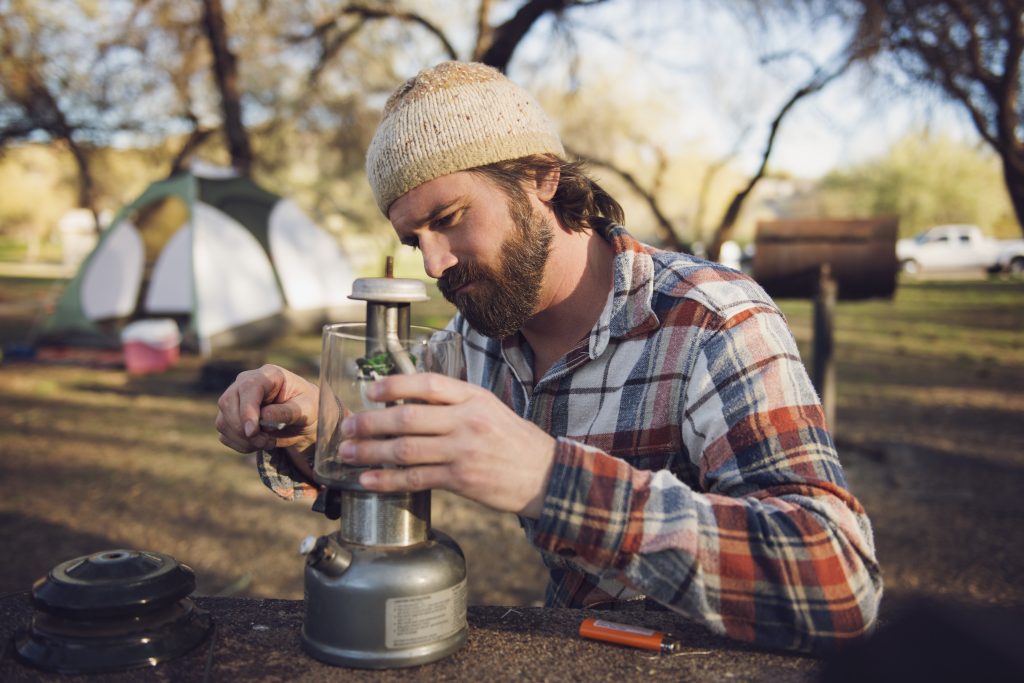
Camping is a great way to get out and explore nature, but it can get dark quickly. That’s where camping torches come in handy. They provide enough light to see what’s around you while staying safe and easy to carry. Solar lamps are another great option for your camping plan. They’re lightweight, so you can take them with you wherever you go. Oil lanterns are also available if you want long-time light support at night.
Stoves for Camp

Camping is always fun and rewarding but can also be very challenging. One of the challenges is cooking food. There are many ways to cook food when camping, but some people prefer stoves that use natural resources like wood or solar energy.
Some campers prefer gas stoves because they are easy to use and provide heat quickly. Gas stoves can also be used outside, which is an advantage over wood or solar-powered stoves. However, gas stoves are not always the best option for camping because they can be dangerous if left unattended.
Wood and solar-powered stoves offer a more sustainable option for camping because they don’t require any external resources like gas or electricity. These stoves are often easier to use than gas ones and provide a more traditional campfire experience.
Cooler for Camp
Camping is an excellent plan if you want to relax in an outdoor place. However, staying comfortable when hot and humid weather can be tricky. That’s where a solar-powered or an air cooler for camp comes in handy. These coolers use solar power or air conditioning to keep food and drink cold. They are very portable, which makes them perfect for camping trips.
Camp chairs

When you’re making your camping plan, make sure to pack a foldable camp chair. These chairs are perfect for taking along on your adventures, as they are foldable and compact. You can easily store them away when you’re not using them, and they make great seats for relaxing or taking in the scenery. There are a variety of foldable camp chairs available on the market, so be sure to find one that is right for your needs.
Pots, plates, cups, and sporks

The camping experience is always fun but can also be tedious if you don’t have the right supplies. Here are some items that will give your camping trip a lot smoother experience:
- Pot: A big pot is great for cooking meals or boiling water, and it’s also perfect for melting cheese on your griddle or making oatmeal.
- Plate: If you want to cook on an open fire, you’ll need a plate to hold your food. Make sure the size of your plate is large enough to accommodate all of your food at once.
- Cup: Just like with plates, cups come in different sizes depending on what you plan to use them for. For example, a cup designed as a drinking vessel is perfect for sipping coffee while sitting around the campfire, and sporks add some extras to your meal.
The Basics of Camping:
- Setting up your tent
- Ligh the campfire and take care of your fire
- Set up the campsite and enjoy the outdoors
The thrill of spending a night outdoors can be experienced by just about anyone. However, camping can be a bit more complicated than setting up your tent and hitting the trails. Today, we are going to discuss the basics of camping so that you can enjoy the experience! The first step in enjoying camping is to pick a spot to pitch your tent. An excellent place to camp is where you can be close enough to enjoy the outdoors but not so close that you will get eaten alive by mosquitoes.
Setting up your tent
When camping, whether in the backcountry or at a park, it is essential to have the right gear and know how to set up and break down your tent. Here are six tips for setting up your tent:
- Find a level, flat surface on which to set up your tent.
- Place the apex of the tent member between two stakes driven into the ground about 20 feet apart.
- Open the flysheet and lay it over the apex of the tent body, tucking it in at all four corners.
- Hold one end of each stake in one hand and use the other hand to pull down on each corner of the flysheet until it is snug against the tent’s body.
- Cross each stake at its midpoint with a short stick or cord, then poke these through both sides of each corner hole.
Light the campfire and take care of your fire
Campfires are a quintessential part of any camping trip, allowing people to gather around the fire and create lasting memories. While fires can be fun and relaxing, they can also be dangerous if not used properly. Follow these simple safety tips when lightening the campfire:
- Never leave a campfire unattended.
- Use caution when lighting a new campfire. Use an existing fire as a guide or an ignition method such as sparks or lighter fluid.
- Make sure your Campfire is entirely out before leaving the area.
- If there is a danger of a wildfire, do not light a campfire. Call emergency services instead.
Set up the campsite and enjoy the outdoors
Camping can be a great way to get out and explore the outdoors, but it’s essential to do it responsibly. Here are some tips for finding a campsite and preparing it for arrival.
- Make sure you have enough firewood for the night and, if possible, a backup supply.
- If camping in a forested area, ensure you know where your wood comes from.
- If you want to use a trap or want to catch fish in the water, then be careful about not harming other people or animals you don’t need.
Conclusion for camping plan:
In conclusion, camping is a great way to relax and have fun. It’s essential to make sure you have everything you need for a safe and enjoyable experience. Be sure to take some medicines with you in case of an emergency.
